Yielding profound significance, the first day of the week in the Bible marks a pivotal shift in worship, inviting exploration into its depths.
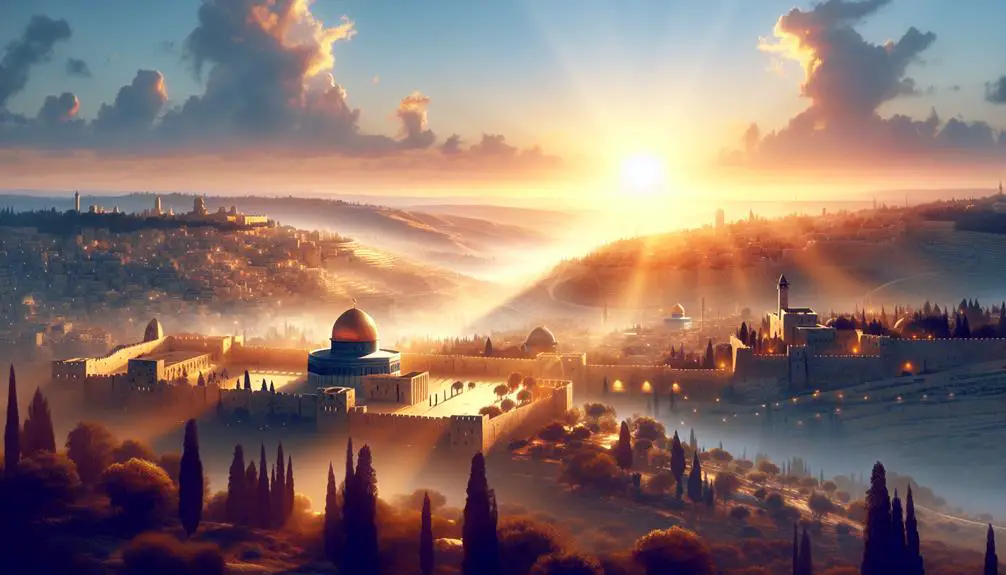
First Day of the Week in the Bible
In the grand timeline of biblical events, it's easy to overlook the significance of the first day of the week, especially with our modern calendars at hand.
You might find it intriguing how this day transitions from the backdrop of Genesis to playing a pivotal role in early Christian observance, notably marked by the Resurrection.
The shift from Sabbath to Sunday isn't just a footnote in religious texts; it's a transformation loaded with cultural and theological implications.
If you're curious about how these changes shaped religious practices and what it means for contemporary faith communities, stay tuned. This journey through history might just alter your perception of the week.
Key Takeaways
- The first day of the week symbolizes a new beginning and resurrection in Christian faith.
- Early Christians gathered on the first day for worship, reflecting a shift from Jewish Sabbath observance.
- Constantine's decree endorsing Sunday worship aligned Christian practice with the Resurrection's significance.
- The practice of gathering on the first day includes traditions like baptism and the Eucharist, emphasizing new life and unity.
Genesis: The Creation Story

In the Book of Genesis, the Creation narrative vividly unfolds, depicting God's orchestration of the universe, often interpreted as a sequence culminating in a day of rest, thereby setting a precedent for the week's structure. This narrative isn't merely a historical recount but serves as a foundational text, illustrating the establishment of cosmic order through divine command. The concept of Divine rest, particularly on the seventh day, underscores the importance of rest within the cosmic order, imparting a sacred significance to the rhythm of work and rest (Gen 2:2-3).
Scholarly analysis suggests that this structuring of time, with a designated period for Divine rest, introduces a paradigm that underscores the interconnection between divine action and human rest. It's an invitation to reflect on the cyclical nature of time and the role of rest in maintaining the cosmic order. This narrative, therefore, doesn't merely recount the origins of the universe but establishes a theological framework that emphasizes the sanctity of rest within the created order.
Sabbath to Sunday Transition
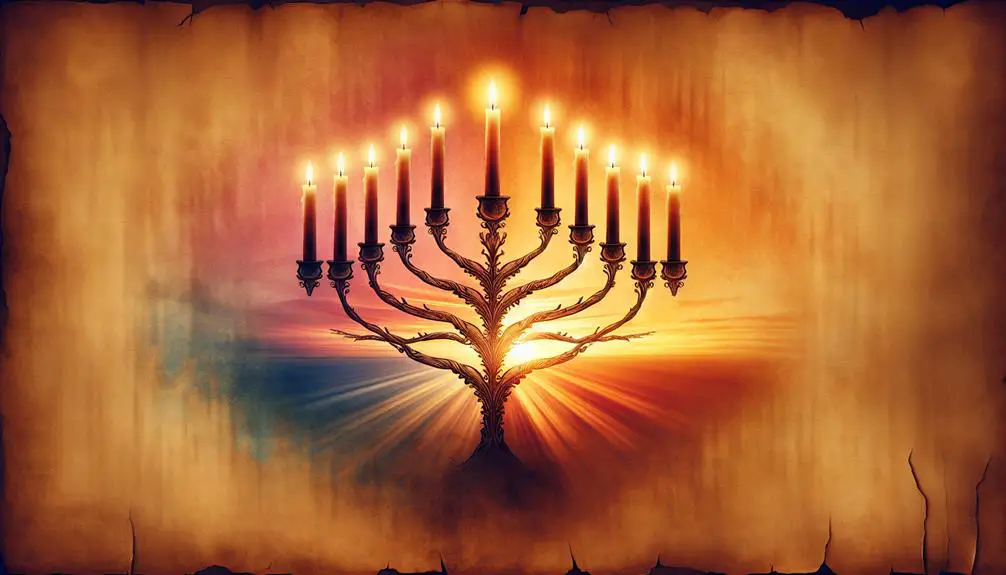
Building on the foundational concept of rest established in Genesis, the shift from observing the Sabbath on the last to the first day of the week marks a significant evolution in religious practice, reflecting early Christian efforts to distinguish their worship in the context of Resurrection theology. This transition wasn't merely a change in calendar days but represented a profound reorientation of religious identity and observance, heavily influenced by the socio-political context of the time.
- Roman Influence: The integration of Christian worship within the Roman Empire's framework necessitated adaptations to existing cultural and political norms.
- Constantine's Decree: The Edict of Constantine, issued in 321 CE, officially endorsed Sunday as a day of rest and worship, cementing the shift from Sabbath observance.
- Theological Rationale: Early Christian leaders, emphasizing the Resurrection of Jesus on the first day, reinterpreted Sabbath theology to align with this pivotal event.
- Community Identity: The move to Sunday worship served as a distinguishing marker from Jewish Sabbath practices, reinforcing a unique Christian identity.
This transition underscores the dynamic nature of religious observance, shaped by theological, political, and cultural forces.
Resurrection Sunday Significance
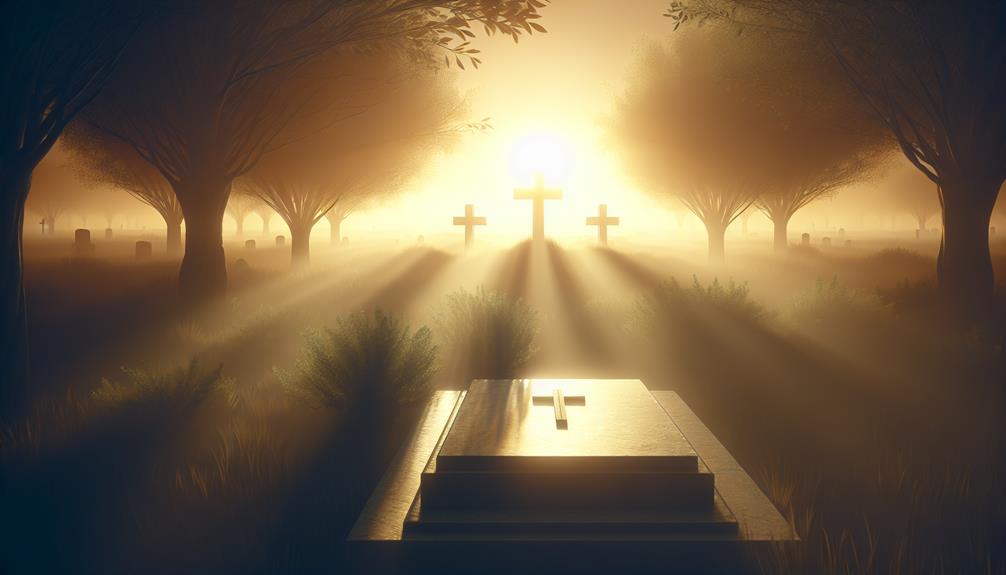
The significance of Resurrection Sunday fundamentally transforms Christian worship, anchoring it in the celebratory recognition of Jesus Christ's victory over death. This pivotal event not only marks the culmination of Holy Week but also symbolizes the core of Christian faith—resurrection and renewal. Easter traditions, deeply rooted in this symbolism, serve as annual commemorations of Christ's resurrection, embodying themes of hope, rebirth, and new life.
Resurrection symbolism permeates Christian liturgy and practice, imbuing them with profound theological meaning. For instance, the Easter Vigil, a key component of Easter traditions, encapsulates the passage from death to life, mirroring Christ's resurrection. This liturgical celebration underscores the transformative power of resurrection, offering believers a tangible connection to the biblical narrative.
Moreover, the emphasis on Resurrection Sunday within Christian worship challenges and reorients the believer's understanding of time and eternity. By celebrating Christ's victory over death, believers are invited to live in the light of this new creation, where death no longer has the final say.
In essence, Resurrection Sunday not only commemorates a historical event but also invites a continual reexamination of faith, life, and mortality, anchored in the hope of resurrection. This day stands as a testament to the enduring impact of resurrection symbolism within Christian tradition, shaping practices, beliefs, and communal identity.
Early Christian Observances
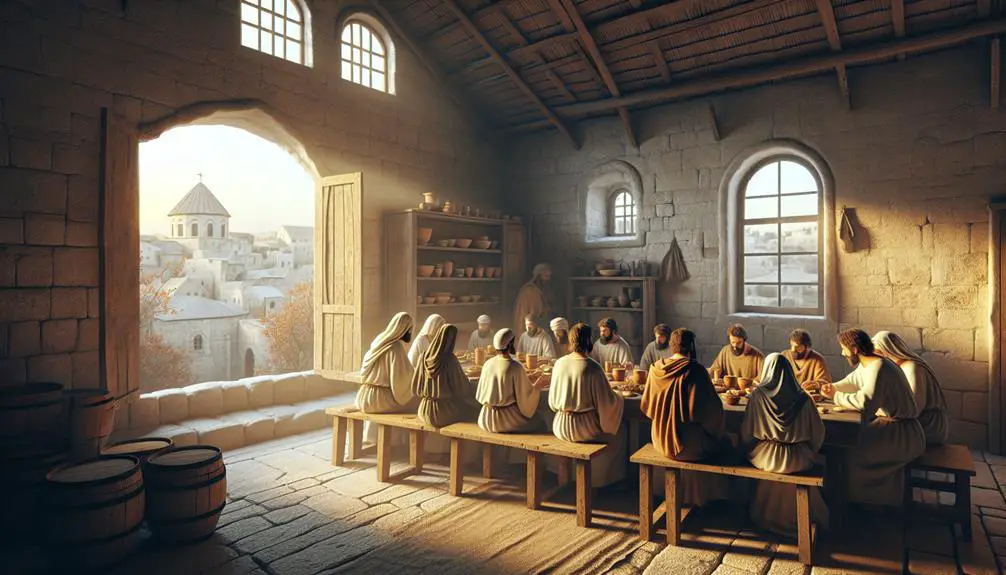
Reflecting on the profound impact of Resurrection Sunday, it's crucial to explore how early Christians observed this cornerstone of their faith, shaping rituals and gatherings that have endured to the present day. The Apostolic traditions and reinterpretation of Passover practices played a significant role in forming these observances.
- Community Gatherings: Early Christians met on the first day of the week, breaking bread and sharing in fellowship, as a direct response to the Resurrection. This practice wasn't only a communal affirmation of faith but also a reenactment of the Last Supper, integrating Passover elements with the new covenant in Christ.
- Prayer and Scripture: They dedicated themselves to prayers and the apostles' teachings, intertwining Jewish traditions with the teachings of Jesus, thus creating a unique Christian identity.
- Baptism: Symbolizing death and resurrection with Christ, baptism was a critical rite of initiation for believers, deeply rooted in the symbolism of Passover's deliverance.
- Eucharist Celebration: Early Christians adapted Passover practices into the Eucharist, commemorating Jesus' sacrifice. This observance was a profound expression of unity and remembrance among believers.
These practices, deeply entrenched in Apostolic traditions, underlined the early Christian community's commitment to living out the teachings and example of Jesus, reshaping Passover practices into a distinctly Christian form of worship.
Cultural and Theological Implications

One must consider how early Christian practices not only shaped spiritual life but also had profound cultural and theological implications, influencing societal norms and theological discourse for centuries to come. The observance of the first day of the week, as a day of worship and rest, introduced a paradigm shift in the cultural fabric of the time. This change wasn't merely a matter of religious observance but also became embedded in the daily lives of communities, affecting their weekly rhythms and social interactions.
The integration of weekly rituals into the Christian tradition had significant implications for theological thought. Scholars argue that this practice underscored the notion of new creation in Christian theology, marking the first day as a symbol of resurrection and new beginnings (Smith, 2020). The adaptation of these rituals over time, accommodating changing societal norms and technological advancements, demonstrates the dynamic nature of religious practice. Modern adaptations of these weekly observances continue to reflect foundational Christian beliefs while responding to the evolving cultural landscape.
In essence, the early Christian emphasis on the first day of the week as a time for communal gathering and reflection has left an indelible mark on both the cultural and theological dimensions of Christianity, showcasing the religion's adaptability and enduring influence on global culture.
Frequently Asked Questions
How Do Different Religions Interpret the First Day of the Week in Their Sacred Texts Outside of Christianity and Judaism?
In exploring how religions view the week's start, you'll find diversity. Islamic tradition doesn't specifically highlight the first day but emphasizes Jumu'ah (Friday) as a day of communal prayer.
Meanwhile, Hinduism regards Somvar (Monday) with veneration, dedicated to Lord Shiva.
Both these observations diverge from the biblical account, showcasing a rich tapestry of beliefs across cultures.
Each tradition interprets time and sanctity through unique lenses, reflecting varied spiritual landscapes.
Has the Concept of the Week Always Consisted of Seven Days in Various Cultures, and How Did This Affect the Designation of the First Day?
The concept of a seven-day week hasn't always been universal across cultures. It's largely tied to lunar cycles and agricultural rituals, impacting how the first day was designated.
In some societies, the week length varied, influenced by celestial observations or seasonal changes. This diversity shows the week's design wasn't static, evolving to meet different cultural needs and perceptions of time, which didn't always align with the seven-day structure we're familiar with today.
Are There Any Archaeological or Historical Evidences That Suggest When the Seven-Day Week First Began to Influence Human Societies?
Peeling back the layers of time, you'll find that the seven-day week, rooted in lunar cycles and agricultural rituals, has ancient origins.
Historical and archaeological evidence suggests it began influencing human societies thousands of years ago.
These patterns, observed through artifacts and documents, reveal a rhythm tuned to nature's dance.
This early calendar system, while not uniform across all cultures, shows a universal tendency to organize time around celestial and seasonal cycles.
How Do International Timekeeping Standards, Such as the ISO 8601, Influence or Reflect Traditional Religious Views on the First Day of the Week?
You'll find that international timekeeping standards, like ISO 8601, don't directly influence traditional religious views on the first day of the week. Instead, they offer a neutral framework that accommodates diverse cultural and religious practices.
In Modern Times, How Has the Globalized Workweek Influenced Religious Practices and Observances Related to the First Day of the Week?
Today, the globalized workweek has significantly impacted religious practices related to the first day of the week.
You'll find that work-life balance challenges and cultural adaptations have led to changes in how religious observances are conducted.
For instance, in some cases, traditional services have shifted to accommodate working schedules, reflecting a blend of reverence and practicality.
This evolution underscores the dynamic relationship between modern professional demands and enduring spiritual traditions.
Conclusion
In conclusion, examining the biblical week's inception reveals a fascinating evolution from the Sabbath to Sunday observance. This shift, deeply rooted in Genesis' Creation narrative and magnified by Christ's resurrection, marks a pivotal transformation in early Christian worship.
As scholars, we observe how theological and cultural currents steered this change, enriching our understanding of religious practices. Interestingly, this journey from Genesis to Resurrection Sunday is akin to swapping vinyl for streaming – both mark significant shifts in their respective domains.


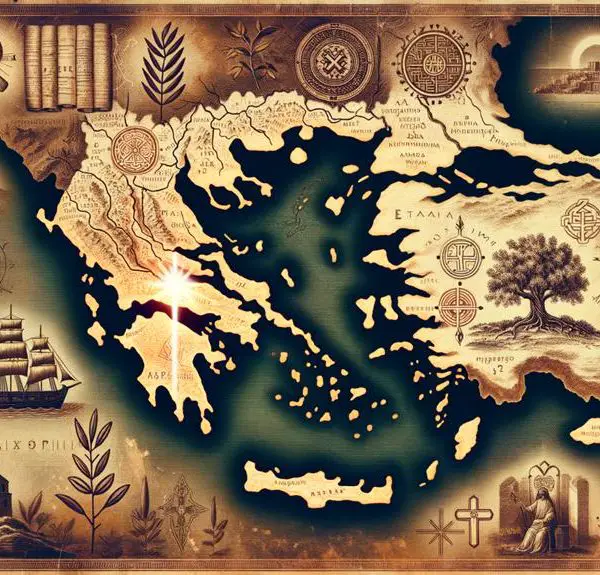
Sign up